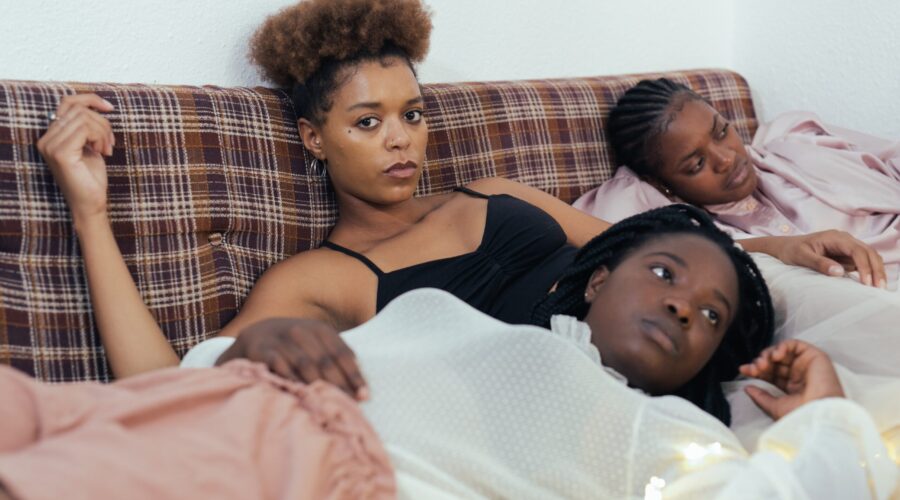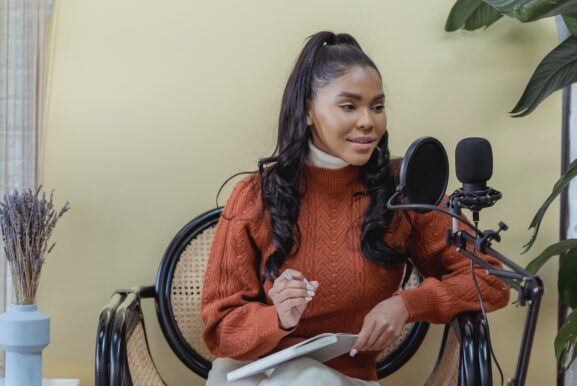Should You Split Up For The Kids?
No community feels the consequences of single parenting, positive or negative, more than the Black community. In the U.S., about 64% of Black children live in single-parent homes. This is more than any other racial group. Yet, it is commonly believed that two-parent households are superior to single-parent households in providing benefits such as two incomes, two childcare sources, and two support sources. We understandably place high value on keeping families intact “for the kids” but if we are genuinely invested in helping children thrive, is the traditional parental binary always the answer? And if so, at what costs? Where should we draw the line in sacrificing to maintain an “intact home”?
Though there are obvious benefits like splitting living expenses and having the easily accessible childcare that two-parent households provide, context is key. The relationship quality of the two parents matters. A dysfunctional and tumultuous relationship dynamic between parents can hugely impact their children and the costs often outweigh the benefits. It is stressful for children to see their parents argue or display obvious disgust toward one another. Not to mention, the impact on parents themselves. Relationship dissatisfaction creates stress, which often increases anxiety and depression. Individuals in dysfunctional or high-conflict couples tend to have a lower sense of life satisfaction, increased resentment toward their partners, and increased stress. This impacts how a parent parents. An unhappy, stressed, depressed, anxious, or angry parent is limited in their ability to show up as their best self for their children. Therefore, just as a strong argument can be made for staying together for the kids, there is an equally strong argument to be made for splitting up for the kids.
The argument goes something like this. Two healthy happy parents who live separately are more beneficial and positively impactful to their child than two bickering unhappy parents living in the same home. To be clear, an utterly conflict-free family dynamic is not realistic but ongoing arguments, criticism, stonewalling and tension between a child’s caretakers create significant stress for children. It creates tension and reduces a child’s sense of safety and security. This is not only about physical safety. We consider a person “safe” when there is no physical abuse present but what is commonly ignored is psychological safety. Psychological safety involves being vulnerable and expressing your thoughts and feelings without fear of reprimand, judgment, or punishment. A child who consistently sees their parents struggle with providing psychological safety to one another may struggle to feel psychologically safe themselves. They may also worry that their home situation is not stable. This can result in them feeling constant anxiety that negatively impacts their functioning in school, social interactions, and physical and mental health. Lack of security and safety is stressful for anyone, especially children whose well-being and survival depend on the adults caring for them.
The aim ought to be cooperative parenting, commonly known as co-parenting. Ideally, two parents living together can work as a well-functioning team in parenting their children, running their household, and living their lives. In reality, this is only sometimes the case. When dysfunctional behavioral patterns characterize parental interactions, it is often best that parents create a more formalized process for parenting their children in separate and more peaceful homes. The potential benefits are a more peaceful living environment, reduced arguing between parents in front of their children, less bickering about parental practices, and more positive interactions between parents. Ultimately, cooperatively parenting separately is better than dysfunctionally parenting together.
Tracie Pinnock is a Licensed Marriage & Family Therapist and Dating Coach who helps women recover from breakups and date better the next time around. She is a single mom of two boys who she co-parents with two exes. She is actively dating and is a firm believer in the value of maintaining a full dating roster while on the journey to finding your ideal partner. Tracie shares advice on breakups and dating on her weekly podcast, Bitter to Better.



